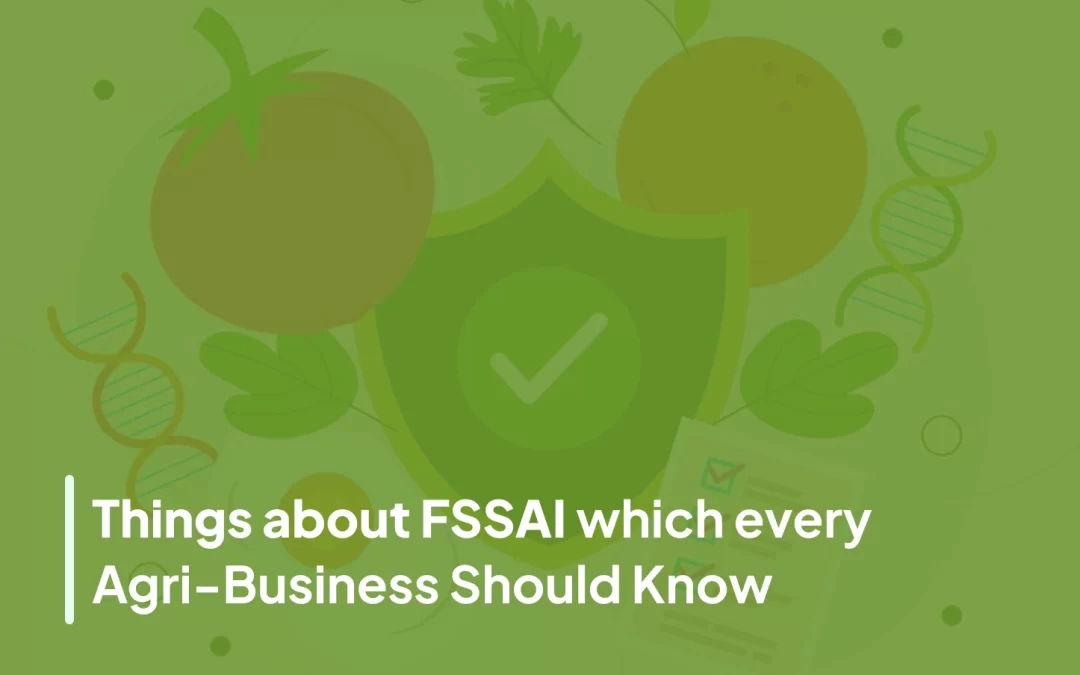Agribusinesses play a crucial role in ensuring food safety and quality in the supply chain. Understanding the regulations set by the Food Safety and Standards Authority of India (FSSAI) is essential for compliance and success. Here’s a comprehensive overview of everything agribusinesses should know about FSSAI:
1. Licensing and Registration
Types of Licenses
– Central License: Required for businesses with an annual turnover exceeding ₹20 crore or those operating in multiple states.
– State License: For businesses with an annual turnover between ₹12 lakh and ₹20 crore.
– Registration: For small-scale businesses with an annual turnover up to ₹12 lakh.
Application Process
– Applications must be submitted through the FoSCoS portal, using Form B.
– A unique Application ID is generated for tracking purposes.
– Businesses can commence operations once the application is submitted, even if the license is pending.
2. Food Safety Management Systems (FSMS)
Implementation of FSMS
– Agribusinesses must establish FSMS to monitor food safety practices and maintain hygiene.
– Regular audits and inspections are mandated to ensure compliance with safety standards.
Traceability
– Implementing traceability systems like Scalion is vital for tracking food products throughout the supply chain, which aids in managing recalls and ensuring quality.
3. Labeling Regulations
Labeling Requirements
– All pre-packaged foods must include clear labeling that specifies:
– Product name
– Nutritional information
– Allergen warnings
– Manufacturing and expiry dates
E-commerce Compliance
– For online sales, products must adhere to labeling regulations, ensuring that all information matches what is displayed physically on the product.
4. Food Additives and Standards
Food Products Standards
– The FSSAI has established specific standards for various food products, including additives, to ensure safety and quality.
– Agribusinesses must comply with these standards when producing or processing food items.
5. Hygiene and Sanitation
Sanitary Conditions
– Businesses must maintain sanitary conditions in production facilities.
– Regular training on hygiene practices for employees is recommended to prevent contamination.
6. Reporting and Documentation
Regular Reporting
– Agribusinesses are required to submit periodic returns regarding their operations, including production volumes and safety compliance.
– Failure to submit returns on time may result in penalties.
7. Penalties for Non-compliance
Non-compliance with FSSAI regulations can lead to serious repercussions, including:
– Fines
– Suspension or cancellation of licenses
– Legal action against the business
8. Recent Amendments
The FSSAI continually updates its regulations to address emerging food safety concerns. Recent amendments include:
– New standards for various food products such as goat milk, sheep milk, oils, millets, and meat products.
– Modifications to existing requirements for food additives and microbiological standards for health supplements and functional foods.
For Agri-Businesses, understanding and complying with FSSAI regulations is not just a legal obligation but also a commitment to ensuring food safety and quality. By adhering to these regulations, businesses can build consumer trust, enhance their brand reputation, and gain a competitive edge in the market. Staying informed about updates and amendments to FSSAI regulations is essential for ongoing compliance and success in the food industry.
Click Here to know about FSSAI Regulations
Scalion Provides Supply Chain Traceability and FSSAI Compliant SaaS Solution for Food Label Packaging and Tracing – Book a Free Demo to explore.
Click Here to know more information about FSSAI Compliant Supply Chain Traceability Solution

